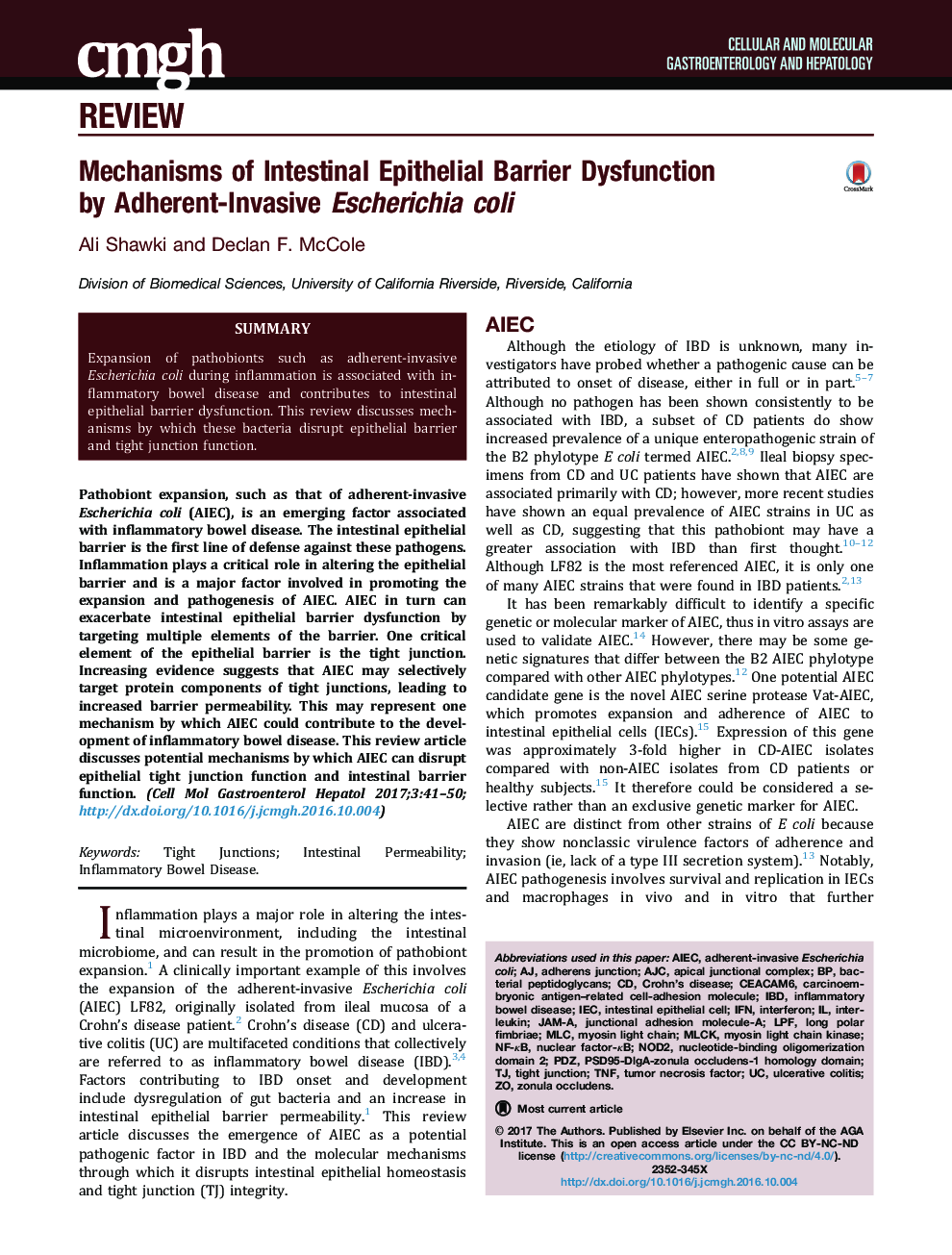| Article ID | Journal | Published Year | Pages | File Type |
|---|---|---|---|---|
| 5517248 | CMGH Cellular and Molecular Gastroenterology and Hepatology | 2017 | 10 Pages |
Pathobiont expansion, such as that of adherent-invasive Escherichia coli (AIEC), is an emerging factor associated with inflammatory bowel disease. The intestinal epithelial barrier is the first line of defense against these pathogens. Inflammation plays a critical role in altering the epithelial barrier and is a major factor involved in promoting the expansion and pathogenesis of AIEC. AIEC in turn can exacerbate intestinal epithelial barrier dysfunction by targeting multiple elements of the barrier. One critical element of the epithelial barrier is the tight junction. Increasing evidence suggests that AIEC may selectively target protein components of tight junctions, leading to increased barrier permeability. This may represent one mechanism by which AIEC could contribute to the development of inflammatory bowel disease. This review article discusses potential mechanisms by which AIEC can disrupt epithelial tight junction function and intestinal barrier function.
